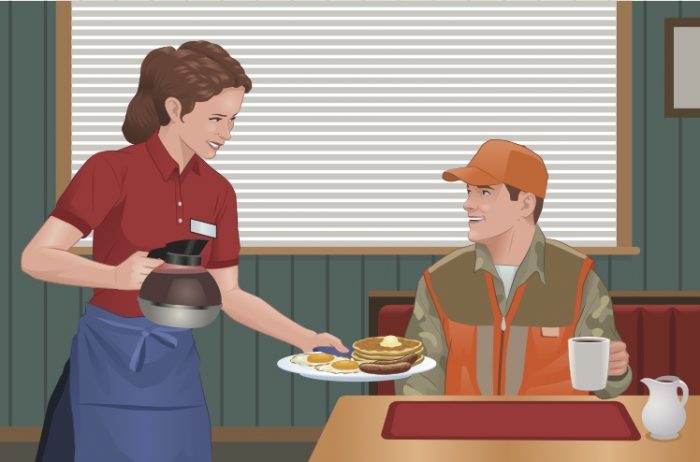By Daniel Dunaief

I’ve tried to dodge the question for years.
For some reason, it comes up despite an eagerness on my part to point to the sky and shout, “Look, it’s a flying turtle,” or to ask, “Wait, aren’t Derek Jeter, Halle Berry and Eva Mendes all sitting together over there?”
You see, I have a dairy allergy. When I first noticed over three decades ago that I couldn’t eat or drink milk products, the world wasn’t as prepared, accustomed and, most of all, accommodating toward allergies.
I’d go in a restaurant, even a fancy one, and tell the waiter or waitress that I was allergic to dairy. I’d get this dubious look like she thought she was on candid camera or that I wanted the fancy French chef to make me a Big Mac.
I tried to order quietly while everyone was looking at their menus or diving for the gold coins I’d thrown across the room as a distraction while I whispered about my allergy to a waitress, begging for a chance to order without facing the inevitable food inquiry.
Alas, more often than not, my distraction techniques and whispering rarely worked.
“I’m allergic to dairy,” I’d mumble.
“Say what?” she’d say.
The restaurant would go silent as if EF Hutton were telling people how to invest.
“I can’t eat anything made with milk, cheese, butter or cream,” I’d say.
“So, what do you want to eat? The chef can’t redo the entire kitchen just for you,” she’d reply, while snarling, blowing the bangs off her forehead and rolling her eyes.
Typically, I’d come up with something creative like a plate of lettuce, an unbuttered bagel, a hard-boiled egg or a Chinese meal. Asian restaurants rarely use milk or butter, which makes Chinese, Japanese and Thai food among my favorites.
Once I’d finally placed the order and was ready to engage in a non-food-related conversation, someone would look me in the eye and ask.
“So, what happens to you if you eat dairy?”
And there it is. I’m not sure what to say. Going into graphic detail forces me to relive unpleasant experiences.
Over the years, I’ve looked at my wife for help. She’s tried to point out the scar from the IV she got when she gave birth to our daughter, shared some exciting anecdote from work, or offered a story from her childhood.
The more we try to redirect the question, the more likely it is to persist.
“No, really, what happens? Would you die?” people have asked eagerly. Sometimes, their tone is so matter of fact that I wonder if they’d like popcorn, with plenty of butter, to watch the death by dairy event.
Do I carry an EpiPen? Would my throat close? Would I need immediate medical attention?
While the answer to all three questions is “No,” I prefer not to think about, and relive, the consequences of a few mouthfuls of key lime pie.
Describing the discomfort that starts in my mouth and continues all the way to my, well, other exit point, requires me to share unpleasant details.
I try to shorten the interaction by suggesting, in general terms, that I’m in intense digestive discomfort.
“How long does it last?” someone asks.
“Long enough that I haven’t had ice cream for over three decades.”
While the question is unpleasant, the modern reality is not. Waiters and waitresses often arrive at the table and ask about food allergies.
Then again, out of habit, some of them ask at the end of my order if I’d like cheese in my omelet or on my burger.
I smile, waiting for them to look me in the eye.
“Right, right,” they eventually grin. “No dairy. I knew that.”







